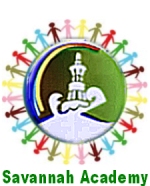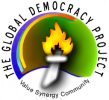ALLIANCE DES DEMOCRATES PATRIOTES POUR LA SORTIE DE CRISE (A.D.P.S)
LES PRINCIPES DIRECTEURS DU SCHEMA DE SORTIE DE CRISE
(Suite au coup d’Etat survenu au Mali le 22 mars 2012)
La crise que le Mali traverse touche au fondement même de notre jeune démocratie, et menace la cohésion nationale ainsi que l’intégrité territoriale. Elle interpelle toutes les forces démocratiques, progressistes et patriotiques.
Face à cette situation, un regroupement de partis politiques et de mouvements a été créé, dénommé Alliance des Démocrates Patriotes pour la Sortie de crise (ADPS) dont l’objectif principal est la recherche d’une stratégie efficace et durable de sortie de crise qui soit compatible avec la Constitution du 12 janvier 1992 et susceptible de remettre le Mali dans la trajectoire d’un rétablissement rapide et durable de la démocratie en harmonie avec l’ordre politique et constitutionnel issu de la Révolution du 26 mars 1991.
Cette Alliance est ouverte à d’autres formations politiques, aux organisations de la société civile et à l’ensemble des forces démocratiques et progressistes dans le but de faire triompher l’intérêt supérieur de la nation.
L’ADPS propose l’adoption du schéma politique et institutionnel ci-dessous qui s’inspire des principes démocratiques et des objectifs majeurs ci-après :
1. Transmettre le pouvoir d’Etat à un organe acceptable pour toutes les parties prenantes sous réserve de validation par la Cour Constitutionnelle en vertu de l’article 85 de la Constitution ;
2. Restaurer la confiance de la population dans l’Etat et renforcer la paix sociale ainsi que la concorde nationale ;
3. Renforcer les mesures de sécurité des personnes et des biens, redémarrer et redéployer l’Administration, les activités économiques et commerciales et ré-ouvrir les frontières ;
4. Assurer la liberté d’expression et de presse ainsi que l’égal accès à tous les média d’Etat ;
5. Obtenir le cessez-le feu immédiat au Nord du Mali en vue de la libération totale du territoire national, du retour des réfugiés et de la quiétude des populations dans la partie septentrionale de notre pays ;
6. Eviter l’isolement du Mali sur le plan régional et international et obtenir l’appui de la communauté internationale pour la mise en œuvre du programme de la Transition ;
7. Lutter contre tous les trafics illicites, le terrorisme et toutes les formes d’insécurité sur le territoire national ;
8. Reformer et remobiliser les Forces Armées et de Sécurité en les dotant de moyens adéquats pour la défense de l’intégrité territoriale et de l’unité nationale ;
9. Préserver l’intégrité physique et morale de toutes les personnes arrêtées lors des récents événements, libérer celles contre lesquelles il n’existerait pas de charge, garantir le respect des droits humains ainsi qu’une justice équitable pour tous les maliens ;
10. Organiser des élections démocratiques, libres, crédibles et transparentes dans un délai réaliste ;
11. Restaurer l’autorité de l’Etat.
L’ADPS lance un vibrant appel à toutes les forces démocratiques, progressistes et patriotiques à se joindre à elle en vue de l’adoption rapide et de la mise du présent schéma politique et institutionnel de sortie de crise.
Bamako, le 26 Mars 2012
Le Directoire de l’ADPS
|
N°
|
Structures
|
Prénoms et Noms du représentant
|
Signatures
|
|
1
|
Convention Nationale pour une Afrique Solidaire (CNAS-Faso Hèrè)
|
Soumana TANGARA
|
|
|
2
|
Front Africain pour le Développement (FAD)
|
Nouhoun SARR
|
|
|
3
|
YELEMA
|
Moussa MARA
|
|
|
4
|
Parti pour l’Action Civique et Patriotique (PACP)
|
Abdoulaye KONE
|
|
|
5
|
AYÈLÈ
|
Aguibou kone
|
|
|
6
|
Convention pour la Renaissance (CR FASO GNETAGA)
|
Moustapha COULIBALY
|
|
|
7
|
MALI DEN
|
Mohamed BAMBA
|
|
|
8
|
Parti Citoyen pour le Renouveau (PCR)
|
Kabiné DOUMBIA
|
|
|
9
|
Farafina Dembé Mali
|
Kassoum COULIBALY
|
|
|
10
|
Réseau Malien pour le Développement (RMD)
|
Django CISSE
|
|
|
11
|
Alliance des Mouvements pour la Conscientisation et la Formation des Jeunes (AMCFJ)
|
Lamine COULIBALY
|
|
|
12
|
Mouvement des Jeunes pour le développement du Mali (MJDM)
|
Ousmane DAO
|
|
|
13
|
Association jeunesse de l’avenir du Mali (AJDA-Mali)
|
Ibrahima TIMBO
|
|
|
14
|
Union Soudanaise RDA (US RDA)
|
Abdoul Salam TOURE
|
|
|
15
|
Assistance Express Association
|
Moussa KEITA
|
|
ANNEXE AU SCHEMA DE SORTIE DE CRISE
1. ORGANES DE LA TRANSITION
1.1. CONSEIL SUPERIEUR DE LA REPUBLIQUE (CSR)
Missions : Autorité suprême de la période de Transition démocratique, le CSR prendra en charge les principales missions suivantes :
- Préparer le retour au cadre constitutionnel de la IIIème République ;
- Les questions sécuritaires, en particulier dans les régions du Nord ;
- L’amélioration de la démocratie et des conditions d’organisation des élections : fichier électoral biométrique, dispositif d’organisation, acteurs impliqués, moyens financiers, etc. ;
- La relégitimation de l’Etat : des actions majeures de lutte contre la corruption et l’insécurité alimentaire, d’amélioration des services publics et de transparence dans la gestion des ressources publiques ;
- Des actions importantes de redressement sur l’école, l’emploi des jeunes, la reforme du secteur de la défense et de la sécurité, la question foncière, etc.
Composition :
Le CSR est composé de 30 membres désignés comme suit :
– 7 membres choisis en leur sein par les Forces Armées et de Sécurité ;
– 18 membres désignés par la classe politique ; et
– 5 membres désignés par la société civile.
Le Président du CSR est le Chef de l’Etat de la Transition. Il est élu parmi les membres du CSR à l’exclusion de ceux représentant les Forces armées et de Sécurité sur base d’un vote devant recueillir au moins les 2/3 des voix.
Le CSR légifère par voie d’ordonnances, lesquelles doivent faire l’objet de délibérations préalables par le Gouvernement et de contrôle de constitutionnalité ou de légalité par la Cour Constitutionnelle ou la Cour Suprême.
La composition du CSR doit tenir compte de l’équité du genre.
Pouvoirs : Le CSR joue le rôle de parlement de la Transition et de direction politique du pays.
Règles de base :
Aucun membre du CSR ne pourra être candidat aux élections présidentielle et législatives qui clôtureront la période de la Transition ;
Les membres du CSR doivent être des personnalités reconnues pour leur patriotisme, leur attachement à la République et à la démocratie ainsi que leur bonne moralité.
Le siège du CSR est à Bamako.
1.2. GOUVERNEMENT DE TRANSITION
Mission : Il élabore et exécute (après approbation du CSR) le programme politique de la phase de Transition.
Composition : Le Gouvernement de Transition comporte, outre le Premier Ministre Chef du Gouvernement, 25 ministres.
Le nombre de ministres formant le Gouvernement est reparti comme suit
- Forces armées : 5
- Classe politique : 18
- Société civile et indépendants : 2
Le Premier Ministre, Chef du Gouvernement est nommé par le Président du CSR après consultation des membres de celui-ci.
Il ne peut être révoqué que par une motion de censure présentée par au moins le 1/3 des membres du CSR et approuvée par au moins 3/4 des membres de celui-ci.
Les ministres sont nommés par le Premier Ministre.
Le Premier Ministre est responsable devant le CSR.
La composition du Gouvernement doit tenir compte de l’équité du genre.
Règles de base :
Aucun membre du Gouvernement de Transition ne pourra être candidat aux élections présidentielle et législatives qui clôtureront la période de Transition.
Les membres du Gouvernement de Transition doivent être des personnes compétentes et de bonne moralité, reconnues pour leur patriotisme, leur attachement à la République et à la démocratie et n’ayant pas été associées à la mauvaise gestion des pouvoirs précédents.
1.3. CONSEIL NATIONAL CONSULTATIF (CNC)
Mission : Le CNC concourt au suivi et à l’évaluation du programme de la Transition en tant qu’instance consultative de la société civile.
Composition : Il est composé de 55 membres désignés par les centrales syndicales, les collectivités territoriales et les organisations faitières de la société civile. Les membres du CNC doivent être des personnes compétentes et de bonne moralité, reconnues pour leur patriotisme, leur attachement à la République et à la démocratie et n’ayant pas été associées à la mauvaise gestion des pouvoirs précédents.
Le CNC élit en son sein un bureau permanent de 7 membres y compris son Président.
Il se réunit en sessions ordinaires tous les deux mois pour une durée qui ne saurait excéder 3 jours.
Les membres du CNC doivent tenir compte de l’équité du genre.
2. DUREE DE LA TRANSITION
La période de Transition pourrait durer douze mois (12) à compter du 5 avril 2012.
3. PLAN DE COMMUNICATION ET DE MOBILISATION
- Le présent document de sortie de crise doit être adressé à toutes les parties prenantes nationales (CNRDRE, partis politiques, la société civile, toutes les confessions religieuses etc.) et internationales (CEDEAO, UA,ONU, UE, etc.)
- Une conférence de presse doit être tenue à la Maison de la Presse ou en tout autre lieu.
- Le document doit être diffusé à travers l’AFP, Reuters, RFI et tout autre media de renommée locale, régionale ou internationale.
- Une lettre ouverte relative au schéma de sortie de crise doit être adressée aux partenaires extérieurs (politiques, techniques et financiers).
- Tous les organes dirigeants des partis et organisations de l’Aliance doivent relayer le document auprès de leurs bases pour une forte mobilisation et un soutien ferme à l’aboutissement de ce plan de sortie de crise.
Bamako, le 26 mars 2012
LE DIRECTOIRE
Filed under: democracy, gambia, guinea, guinea bissau, Liberia, Mali, Senegal, sierra leone, the global democracy project, USAGeorgia | Tagged: ADPS, amadou toumani toure, au, ceasefire with mnla, coup in mali, ecowas, eu, freedom of expression and of the press, government of transition, mali crisis, mali national integrity, north mali rebel group mnla, the global democracy project supports the ADPS project for crisis resolution in Mali, un | 1 Comment »
 AuthorHouse Publishing Bloomington Indiana, USA. 377 pages
AuthorHouse Publishing Bloomington Indiana, USA. 377 pages










